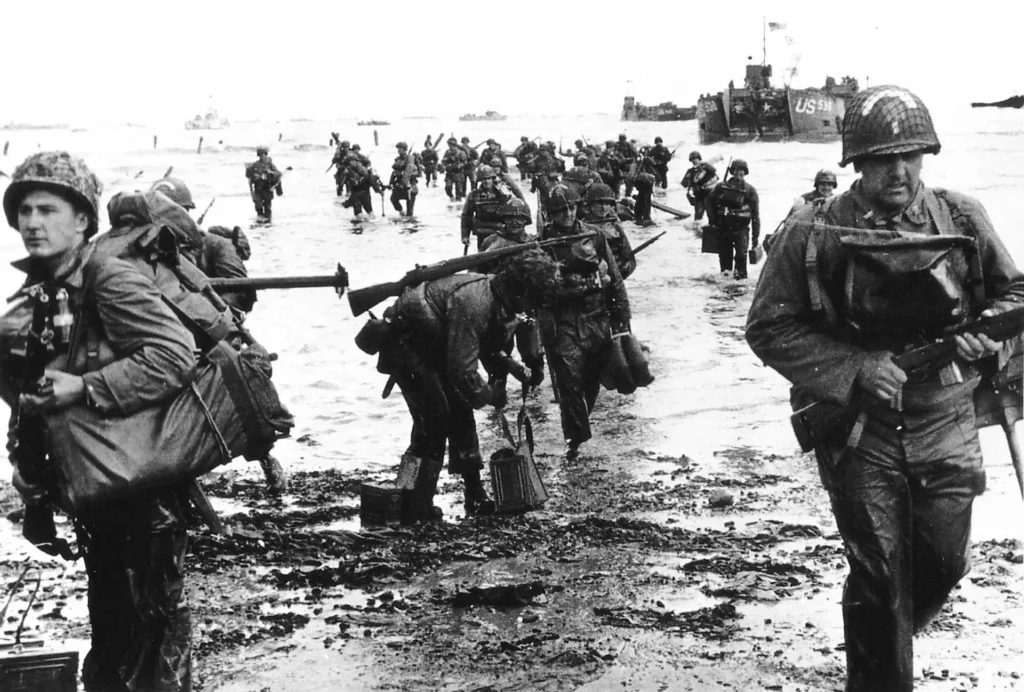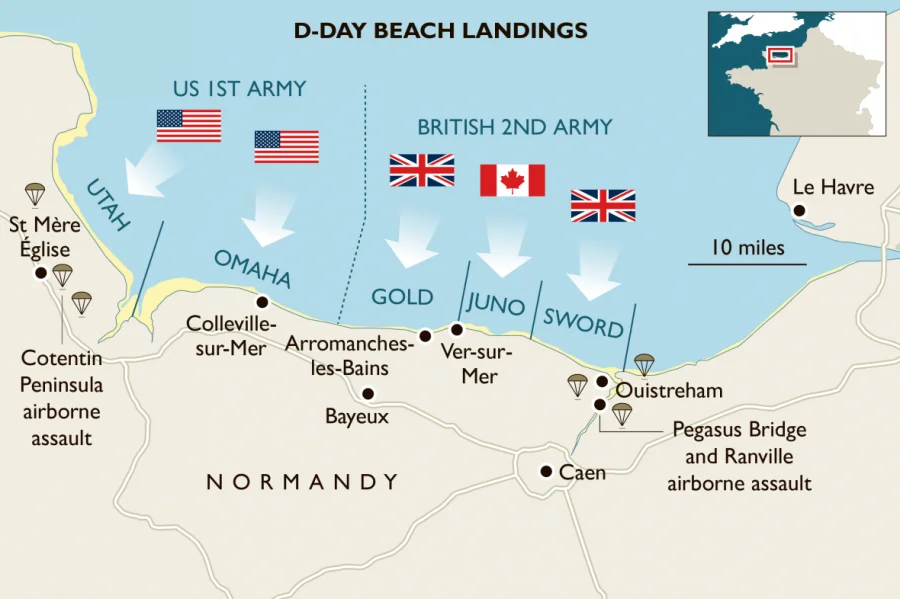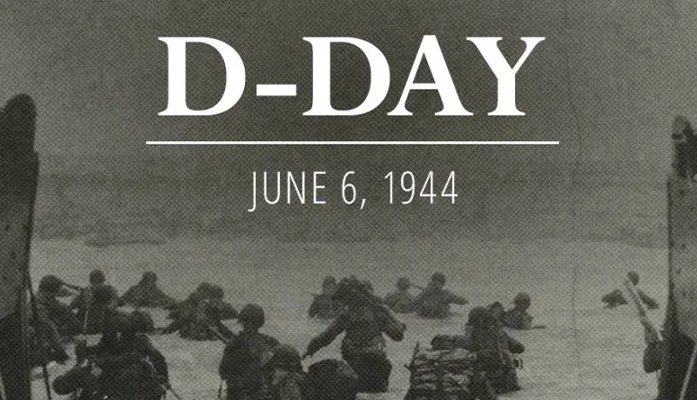On June 6, 2024, the world pauses to commemorate the 80th anniversary of D-Day, a pivotal moment in World War II that marked the beginning of the end for Nazi Germany. This historic day, also known as the Normandy Invasion, saw the Allied forces launch a massive assault on the beaches of Normandy, France. The operation, codenamed Operation Overlord, remains one of the largest amphibious military assaults in history and a defining moment of the 20th century.
See the pictures of D-Day landings here.
Table of Contents

The Prelude to Invasion
Leading up to D-Day, the Allies meticulously planned and executed an extensive deception campaign, Operation Bodyguard, to mislead the Germans about the invasion location. The actual target, Normandy, was chosen for its strategic advantages, including proximity to England and suitable terrain for advancing troops. Months of preparation involved gathering troops, amassing equipment, and conducting training exercises to ensure the success of the operation.
The Invasion Unfolds

In the early hours of June 6, 1944, Operation Overlord commenced. The invasion began with overnight parachute and glider landings, air attacks, and naval bombardments. At dawn, over 156,000 American, British, and Canadian forces stormed five beaches: Utah, Omaha, Gold, Juno, and Sword. The American troops faced fierce resistance at Omaha Beach, suffering significant casualties, but perseverance and heroism prevailed. By the end of the day, the Allies had secured a foothold in Normandy, marking the first step in the liberation of Western Europe from Nazi control.
The Human Toll
The cost of D-Day was staggering. More than 4,400 Allied soldiers lost their lives, and thousands more were wounded or went missing. German casualties were also significant, though exact numbers remain uncertain. The bravery and sacrifice of those who fought and died on D-Day continue to be honored and remembered for their crucial role in restoring freedom and peace to Europe.
The Impact and Legacy
D-Day was not just a turning point in World War II; it was a defining moment in history. The successful invasion led to the liberation of Paris in August 1944 and ultimately contributed to the defeat of Nazi Germany in May 1945. The operation demonstrated the strength of Allied cooperation and the importance of meticulous planning and execution in military strategy.
Commemoration of the D-Day
The 80th anniversary of D-Day is marked by ceremonies and events in Normandy and around the world. Veterans, dignitaries, and descendants of those who served gather to pay tribute to the courage and sacrifice of the soldiers who participated in the invasion. Memorial services, reenactments, and educational programs aim to ensure that the legacy of D-Day is preserved for future generations.
In Normandy, the beaches and surrounding areas serve as living memorials. The Normandy American Cemetery and Memorial in Colleville-sur-Mer, overlooking Omaha Beach, stands as a solemn reminder of the cost of freedom. The Pegasus Bridge, Pointe du Hoc, and other sites continue to attract visitors who wish to honor the past and learn about the historic events that took place there.
Conclusion
As we commemorate the 80th anniversary of D-Day, we reflect on the bravery, sacrifice, and determination of the Allied forces. Their actions on June 6, 1944, changed the course of history, leading to the eventual defeat of tyranny and the restoration of peace in Europe. The memory of D-Day serves as a powerful reminder of the cost of freedom and the enduring spirit of those who fought to protect it.




